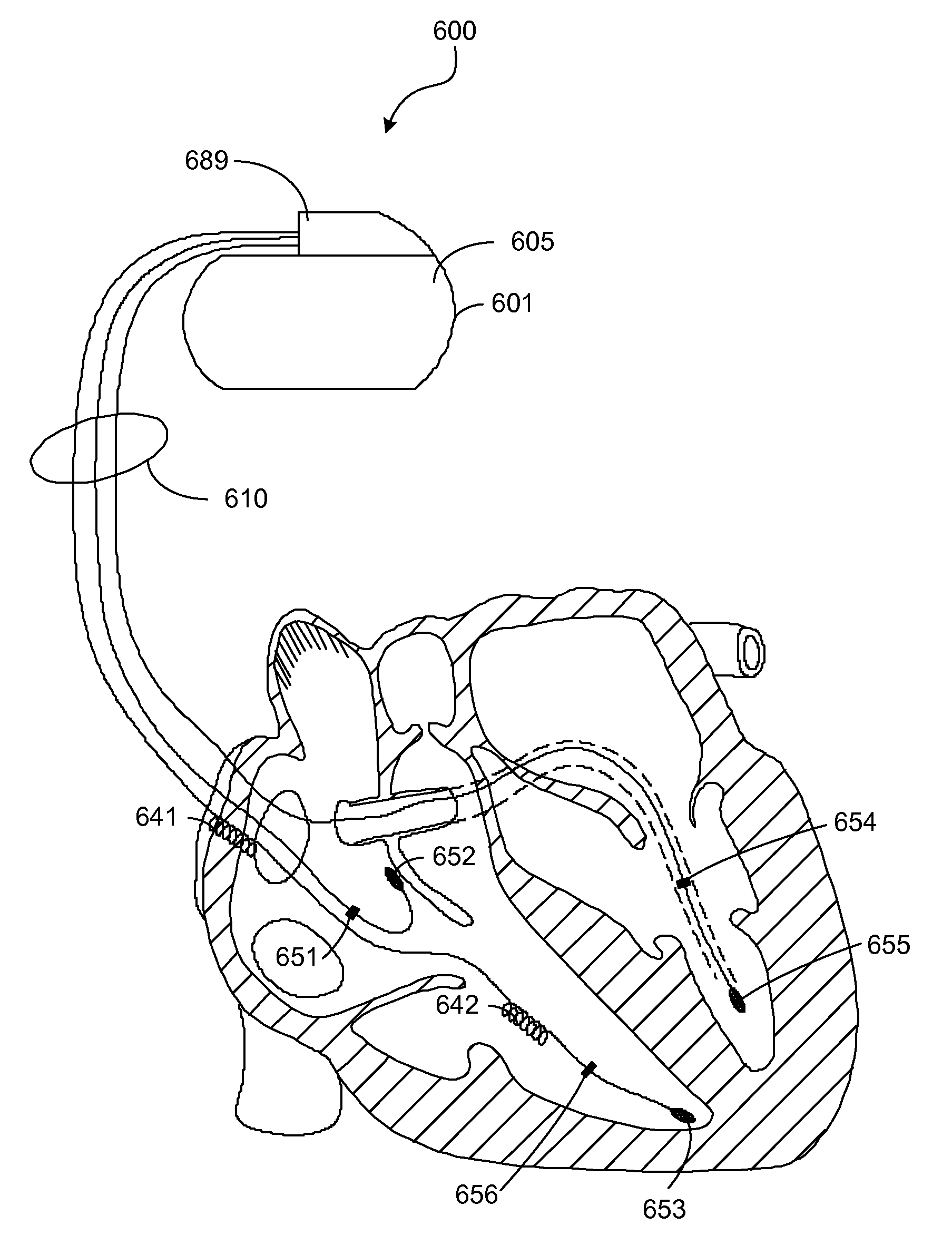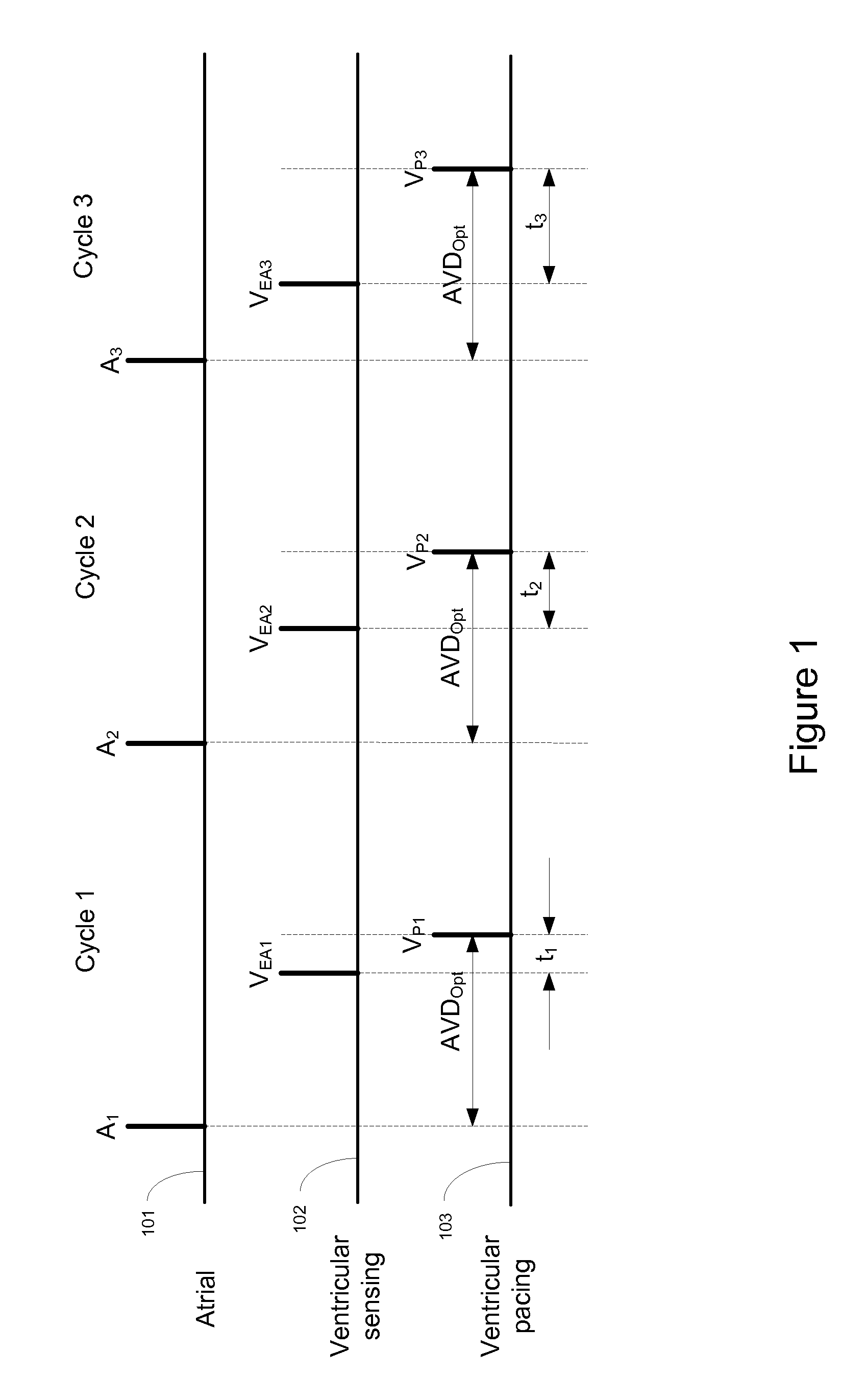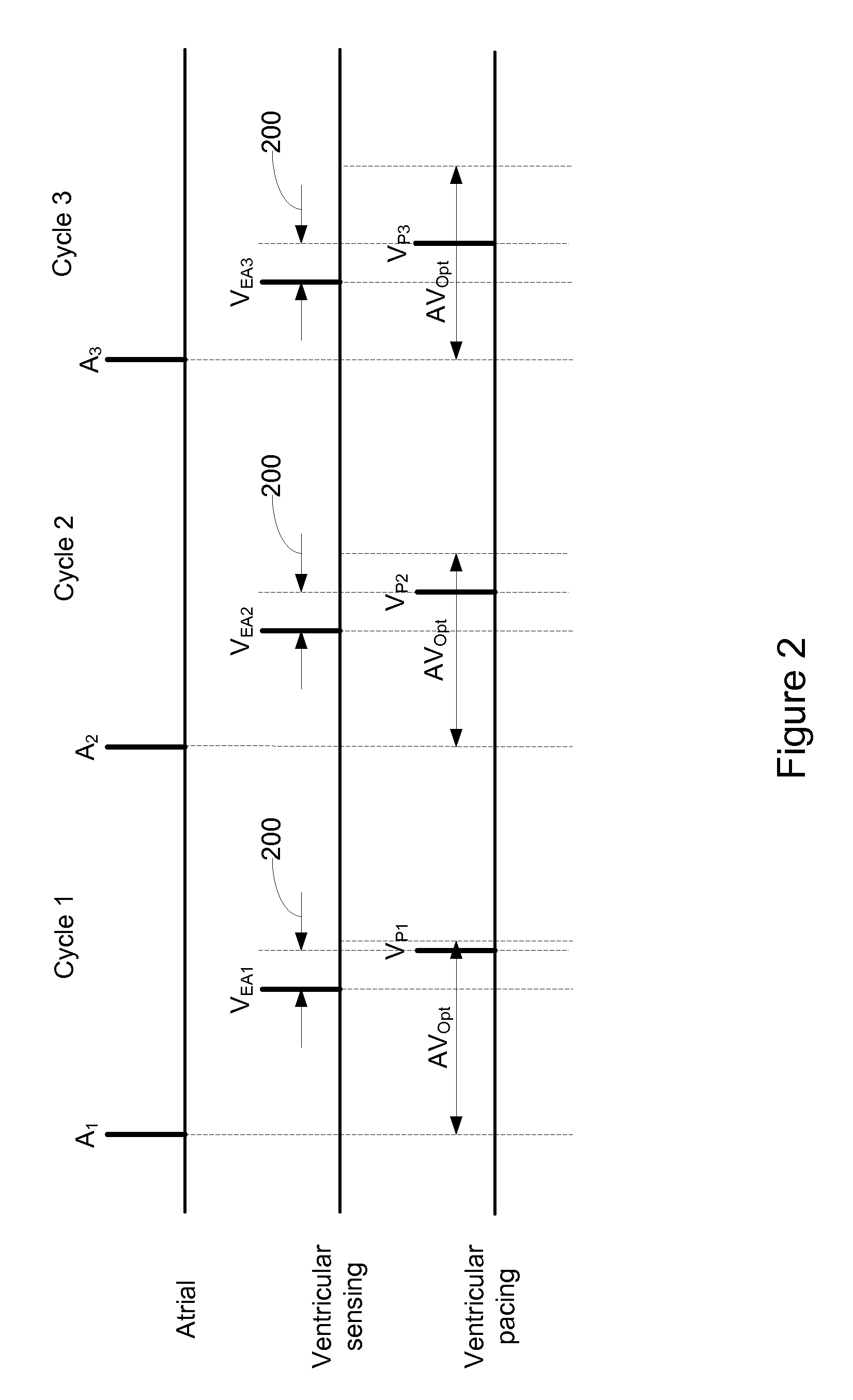Dynamic Cardiac Resynchronization Therapy by Tracking Intrinsic Conduction
a technology of intrinsic conduction and cardiac resynchronization therapy, which is applied in the field of dynamic cardiac resynchronization therapy by tracking intrinsic conduction, can solve the problems of bradyarrhythmia producing a heart rate too slow to maintain adequate circulation, impaired heart pumping action, and inability to pump blood to peripheral tissues, etc., and achieve the effect of improving cardiac function
- Summary
- Abstract
- Description
- Claims
- Application Information
AI Technical Summary
Benefits of technology
Problems solved by technology
Method used
Image
Examples
Embodiment Construction
[0028]In the following description of the illustrated embodiments, references are made to the accompanying drawings, which form a part hereof, and in which is shown by way of illustration, various embodiments in which the invention may be practiced. It is to be understood that other embodiments may be utilized, and structural and functional changes may be made without departing from the scope of the present invention.
[0029]Systems, devices or methods according to the present invention may include one or more of the features, structures, methods, or combinations thereof described herein below. For example, a device or system may be implemented to include one or more of the advantageous features and / or processes described below. It is intended that such device or system need not include all of the features described herein, but may be implemented to include selected features that provide for useful structures and / or functionality. Such a device or system may be implemented to provide ...
PUM
 Login to View More
Login to View More Abstract
Description
Claims
Application Information
 Login to View More
Login to View More - R&D
- Intellectual Property
- Life Sciences
- Materials
- Tech Scout
- Unparalleled Data Quality
- Higher Quality Content
- 60% Fewer Hallucinations
Browse by: Latest US Patents, China's latest patents, Technical Efficacy Thesaurus, Application Domain, Technology Topic, Popular Technical Reports.
© 2025 PatSnap. All rights reserved.Legal|Privacy policy|Modern Slavery Act Transparency Statement|Sitemap|About US| Contact US: help@patsnap.com



